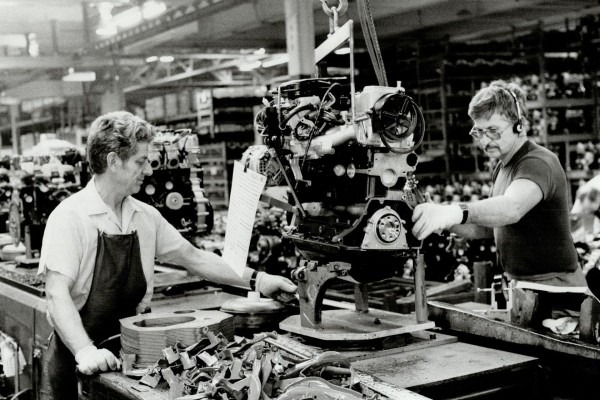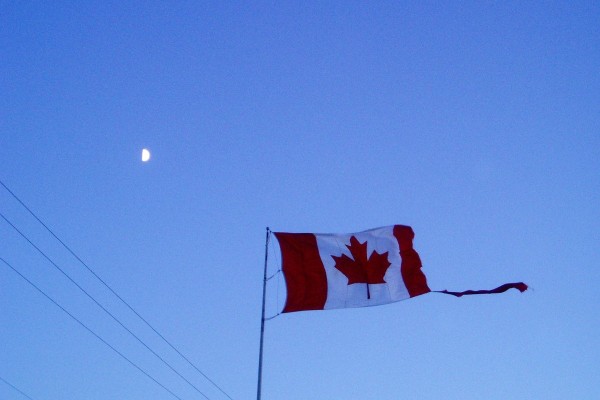-

Predatory capitalism: Neo-mercantilism and the Canadian economy
Canada is no longer dealing with a globalizing neoliberalism that extracts surplus value from developing countries, the domestic working class, and racialized minorities. Instead, the American alt-right works with and through a different regime of accumulation that bears more affinities to mercantilism than the neoliberal order it is in the process of supplanting.
-

Paul Kagame’s foray in eastern Congo leaves thousands dead and sparks fears of a broader war
It’s difficult to know why Kagame gambled on his troops seizing Goma now, a move surely to trigger an international outcry. The Rwandan leader may be bent on testing the Trump administration’s resolve or lack of interest in Central Africa in order to pursue Rwanda’s territorial expansion in Congo, and consolidate control over areas rich in artisanal minerals.
-

Mobilizing Canada for economic battle?
Over the past 60 years left-leaning folk have largely turned a blind eye to the decay of Canada’s distinguished military heritage and typically cast a jaundiced eye towards any talk of significant reinvestment. At this moment in history Canadian governments need to respond with the same energy and urgency that mobilized efforts to make our economy battle-ready in the face of war.
-

The battle for Steensby Inlet is not over
Inuit hunters from a small community in Nunavut are demanding a reassessment of a proposed expansion to an iron ore mine. Baffinland Iron Mines intends to build a port and railway to Steensby Inlet, near the Inuit community of Igloolik, as part of a plan to quadruple production at its Mary River Mine. The port and railway were originally approved by the Government of Canada in 2012.
-

Building self-reliance: the alternative to free trade
In order to achieve self-reliance several complementary, integrated components must be pursued. At the centre is an industrial strategy, which should be accompanied by appropriate monetary policy, regional development, fiscal policy, social policy, technological innovation, property ownership and control over investment, and international relations.
-

Germany’s new right: Trading on nostalgia for past prosperity in an age of uncertainty
This long-read offers a different explanation for the hard-right surge in Germany. It shows that German unification in 1990, signalling the triumph of liberal democracy and the onset of neoliberal globalization, unleashed a new form of nationalism—Deutschmark nationalism—which, after mutating into export nationalism for a while, became the ideological seed for the AfD.
-
_01_600_400_90_s_c1.jpg)
Trudeau government gets failing grade on tax fairness
While Prime Minister Justin Trudeau portrayed himself as a progressive champion, his policies failed to meet the big challenges of our time. Tackling the affordability, housing, and climate crises head-on will require bold action—half-measures are not enough. Progressive parties must put forward bold solutions that can meet these challenges head-on.
-

With Trump’s tariffs, it’s time for a more self-reliant Canada
By raising tariffs unilaterally, Trump will grossly violate USMCA, the former NAFTA. It’s no use doing deals with Trump, that he will break. Instead, let’s dust ourselves off and make things by Canadians for Canadians. Canada was tossed out of similar arrangements before. We picked ourselves up, became more self-reliant and thrived. Can we do so again?
-

Responding to Donald Trump with a popular democratic project for Canada
The unfolding climate catastrophe, growing inequality, the disintegration of the country’s social safety net, and the rise of profoundly reactionary yet increasingly viable political forces at home and abroad make it imperative for Canadian socialists to develop strategies to begin to substantively challenge Canadian elites at the national scale.
-

The Waffle Manifesto: For an Independent Socialist Canada
In 1969, a caucus of NDP members known as the Waffle organized to promote a socialist and nationalist agenda, which included the replacement of US private ownership of Canadian industry with Canadian public ownership. Many of the core ideas that the Waffle stood for were first developed and debated in CD—by the very people who eventually emerged as Waffle leaders.



